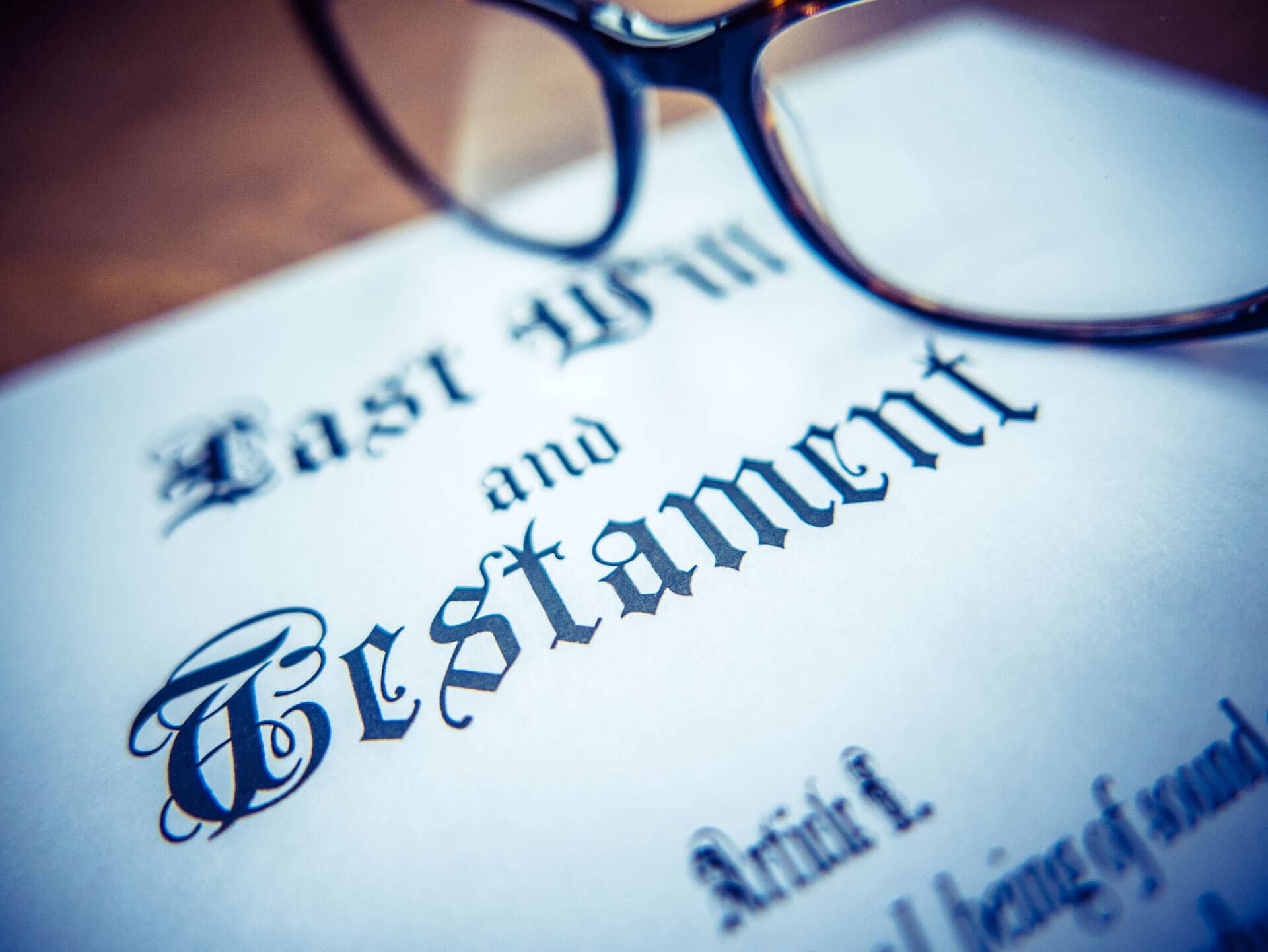As you are looking through your loved one’s belongings, you wonder what you will do with it all. Who gets the family china? What did they want to be done with their residence? Which of the relatives will receive a portion of the money left in the deceased’s bank accounts?
Unfortunately, people often have to decide each of these things when there isn’t a will to be found. By not having a will, families are left in the dark about what to do with the deceased’s belongings and how to proceed legally.
Figuring out Who is in Charge of the Estate.
When a person dies without a will, this is known as “dying intestate”. This means the law decides who inherits the estate by criteria called “intestacy rules”.
A relative or friend can choose to sort out the estate, but they also have to take care of the estate promptly. For someone to take over the administration of the estate, the person wanting to be responsible will need to apply for a “grant of letters of administration”.
The grant will allow the administrator to value the estate, pay any debts and distribute the estate according to the intestacy rules. It will take quite a bit of time to sort out an estate if the person who died wasn’t prepared, so it is best to apply for probate as soon as possible. The sooner you have administrator status means the sooner the heirs to the estate can receive their inheritance.
Who Will Inherit?
The intestacy rules are laid out so only close relatives will receive anything from the estate before distant relatives. It is laid out in this order:
#1. Spouse or Civil Partner
A spouse or civil partner will receive the entire estate if there are no children.
If there are children and a surviving spouse or civil partner, the surviving spouse or partner will receive:
- The first £270,000 of the estate
- Half of anything left over
- The deceased’s personal possessions
The children will receive what is left. This doesn’t include step-children who aren’t legally adopted. Step-children have no stake in the inheritance unless they have been adopted before the deceased’s death. If step-children are treated as children of the family and you want them to inherit any of your estate you need a will to state your wishes.
#2. Offspring
If the deceased was not married , but had children who survived him, they will inherit everything. It will be divided equally among his children.
If there is no legally binding marriage at the time of death but the dearly departed had a partner who was living with him, the partner’s position is precarious. The complexity of the partner’s situation depends on whether they lived with the dearly departed in the same house for two years before the death. If it’s less than two years, they are not entitled to any of the loved one’s estate, unless they owned assets jointly. If they owned property jointly, they will have to pay part of the inheritance tax liability due from the deceased’s estate, if the estate is taxable.
If the partner lived with the deceased for two years immediately before the death, as long as it occured in England or Wales, the partner will be entitled to a claim for maintenance. Unfortunately they have to engage solicitors to start court proceedings to make sure that they get what they are entitled to, under their loved one’s estate. Engaging solicitors for this type of claim is expensive especially if it goes to court. Costs of over £25,000 are not uncommon.
Depending on the relationship with any children that the dearly departed may have, the partner may not even be allowed to take part in the funeral preparations. This can be very stressful and painful for any surviving partner, especially if they lived with the departed for a long time.
The myth of the common-law wife or husband does not exist.
#3. Grandchildren
There is a possibility the deceased may not have any living children left. It is the grandchildren who inherit if that is the case.
#4. Parents
The deceased’s parents are the next to receive the inheritance if the dearly departed died without offspring or adopted children. This doesn’t include step-parents. Step-parents have no legal standing to receive anything from the estate. If a child has been brought up by a step-parent and sees that step-parent as their parent, the child needs to have a will giving the step-parent whatever they wish them to have.
#5. Siblings
Siblings will only receive the inheritance if there are no offspring, grandchildren, or parents. This does include half-siblings. It does not include step-siblings.
#6. Nieces and Nephews
Say the deceased is the last of the family’s brood left. When they die, the nieces and nephews will inherit the estate.
#7. Grandparents
Grandparents are the next to be granted the inheritance if there is no one else. This does not include step-grandparents.
#8. Aunts or Uncles
The next in line are aunts and uncles. This doesn’t include the step-aunt or step-uncles. It does include any half-aunt or half-uncles the deceased may have.
#9. First Cousins
First cousins will inherit the estate if there are no aunts or uncles left. This does not include any step-children the aunt or uncles may have unless they have been legally adopted.
#10. The Crown
If there are no living blood relatives left to inherit the state, the entire inheritance will go to the Crown. This is a process known as “bona vacantia”.
Bona Vacantia means any vacant goods. The ownerless property is given the name “bona vacantia”, and by law, then passes to the Crown.
The Treasury Solicitor acts on the Crown’s behalf to administer the estate of people who pass intestate without blood relatives. Assets and other ownerless goods are collected by the Treasury Solicitor and become properties of the Crown.
What Happens to Jointly Owned Property?
There are many cases where a home is owned jointly by someone who is not a blood relative. They are called “joint tenants” or “tenants in common”.
If the deceased passes away and the house is owned by both parties as joint tenants, it is not considered part of the estate. This means if one person dies, the other will inherit their share, even without a will.
However, if the property has the owners listed as tenants in common and one dies, the shared half of the property isn’t automatically given to the other owner. The intestacy rules are followed if there is no will and whoever is next in line for the estate now owns the other half of the home.
Who Can’t Inherit if there is no Will?
When there isn’t a will, it makes a challenging situation for everyone in the deceased’s life. Without a will, anyone who is not in a legally-recognised relationship with the person cannot inherit any of the estate. This includes:
#1. Unmarried partners
Common law partners do not exist. Therefore any partner who lives with the dearly departed needs a will to give them authority to administer their loved one’s will. As heartbreaking as it sounds, there isn’t a legally-recognized relationship, and it goes to a blood relative instead.
#2. Relations by marriage
Even though the step-children may have been raised by the deceased for their entire lives, they have no claim on the estate. Unless there is a formal adoption or they are maintained by the dearly departed the step-children will receive nothing.
This also includes parents-in-law, brothers-in-law, and sisters-in-law. While the spouses are legally bound to each other, their respective families are not.
#3. Close Friends
While a close friend may have helped the deceased in their last days more than their own family, they cannot inherit the estate unless the dearly departed leaves a will giving them a gift
Having a Will is Important
Passing on without a will outlining who you want to inherit leaves a very complicated process for the loved ones to follow. The best thing you can do for your loved ones to give them peace of mind after you are gone is to outline your final wishes in writing formally while you are still of sound mind and body, and long before you ever need to.
Elizabeth Middleton Solicitors are at the ready with an expert legal staff to assist you with your will needs. Contact us for more information about assistance with your will, as well as your other legal needs for end of life.











